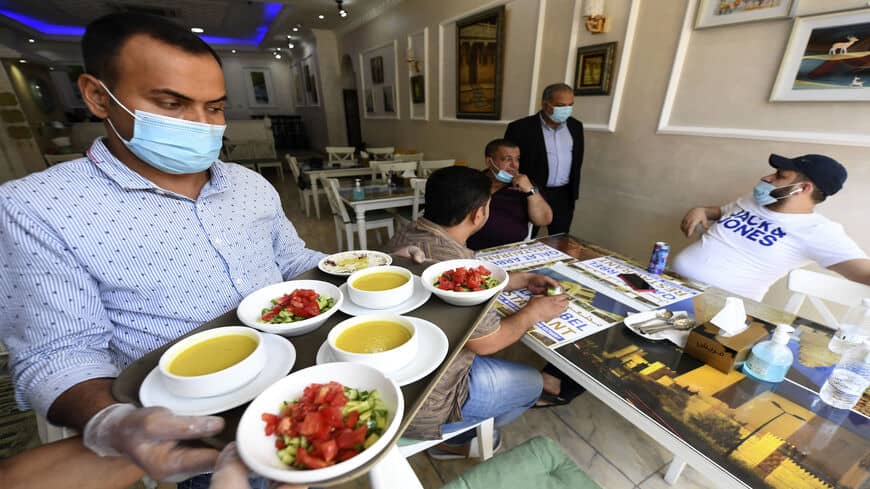The hotel industry is at the forefront of all those affected by the COVID-19 pandemic’s repercussions, both globally and in the Gulf, as governments’ closure measures to limit the pandemic’s spread have dropped the industry’s revenues to unprecedented levels.
Despite the sector’s difficult period, there are high hopes for recovery, particularly in the UAE and Saudi Arabia, where both countries are attempting to encourage investment in this sector, especially in light of the region’s plans to diversify its economy away from oil and gas.
“Hotelier” website, which specializes in hotels worldwide, estimated that the Gulf hotel sector’s investments reached $27 billion. According to the site, new hotel projects worth $3.5 billion in the region were approved in 2020, indicating that investors expect the hotel market to return to normal in the next two or three years when activities resume.
Most of these new investments are in Saudi Arabia and the UAE. The majority of these projects are in Saudi Arabia’s tourism sector, such as the Red Sea Project, NEOM, Amaala, Diriyah Gate, Al-Ula, Mecca’s Jabal Omar, and Dubai’s Jewel of the Creek, according to the fourth annual hotel investment report issued by the Arab and African Hotel Investment Conference (AHIC).
Expo 2020: A Major Attraction for Investors
The UAE is one of the most important hotel markets in the region and the world, as it acquires all the added advantages to be the first destination for tourism investment, including excellent infrastructure, facilities, and government incentives, as well as a package of private-sector incentives to boost hotel investment.
Expo 2020 Dubai is an accelerator for tourism investment since it will help Dubai and the UAE recover from COVID-19 and attract investments from several local and international markets, which will positively affect the sector’s contribution to GDP.
According to data from the World Tourism Organization and “Statista,” the firm that specializes in market and consumer statistics, the number of hotel rooms in the UAE has increased by 43.2 percent since the announcement of Dubai’s hosting of Expo 2020 in 2013, from 125.7 thousand rooms to more than 180 thousand rooms at the end of 2020.
According to preliminary data from Local Tourism Authorities, the UAE’s tourism sector experienced a massive leap in 2021 Q1. Hotel and tourist businesses attracted nearly 4 million tourists, and the occupancy rate reached 63 percent.
Until the end of March 2021, 1,096 hotels had been established in the country, including 181.3 thousand rooms.
Furthermore, there are currently 99 hotel facilities under construction in the Emirates, totaling 29,000 rooms, indicating market confidence and a desire to invest in hotel facilities.
Despite the unusual circumstances that the tourism sector suffered worldwide in 2020, the UAE managed to attract 14.8 million tourists to hotels and tourist facilities, generating revenues of around $4.5 billion.
On the other side, while the UAE could have a higher hotel occupancy rate than the rest of the globe, the occupancy rate of hotel facilities in the country reached 54.7 percent in 2020, compared to only 37 percent globally.
According to the latest estimates from the STR Corporation, which specializes in hotel research and consulting, the UAE will add about 6,517 new hotel rooms in the following months, bringing the total of hotel rooms in the UAE to over 186.5 thousand by the end of 2021.
Many new hotels are expected to open in the country over the next three years. For example, the Rotana Group will open ten new hotels in strategic markets, totaling around 3,000 hotel rooms. In addition, Deutsche Hospitality will open two hotels until 2024 where it is preparing to launch the first hotels of the “Jazz in the City” in 2022, in Deira, Dubai.
Saudi Arabia is a Profitable Investment Destination
Saudi Arabia is leading the region’s tourism strategy with “Vision 2030,” which has already begun to yield results in large projects such as “NEOM,” the “Red Sea” project, “Diriyah Gate,” “Al-Mualla,” and “Al-Ula,” all of which will contain hotels and resorts.
Today, Saudi Arabia is an attractive market for hotel investment, drawing the attention of international companies, especially with the growing interest in tourism and entertainment and the emergence of the Tourist Visa system. This Visa is expected to attract many tourists to the country, as Saudi Arabia aims to reach 100 million tourists by 2030, trying to be one of the top five tourist destinations in the world.
The launch of the Tourist Visa marked a turning point in the country’s efforts to achieve Saudi Vision 2030 and the development of the tourism and hospitality sector, which aspires to contribute up to 10 percent of GDP by 2030 and create up to one million new job opportunities.
According to the Saudi Commission for Tourism and National Heritage statistics, over 150,000 new hotel rooms will be constructed across the country over the next three years. The funding from the government will be 30 percent, and the private sector will fund 70 percent, as many international companies expressed an interest.
According to Saudi Tourism Minister Ahmed Al-Khatib, Saudi Arabia plans to attract new investments of $59.7 billion by 2023 and more than $135.8 billion by 2030.
Saudi Arabia is seeking to make things easier for hotels to obtain licenses by reducing the time required to only ten days in exchange for a permit that used to take a long time.
The country aims to invest heavily in tourism projects, with banks and the Tourism Development Fund partnering to finance a portion of these projects in conjunction with private sector investments.








